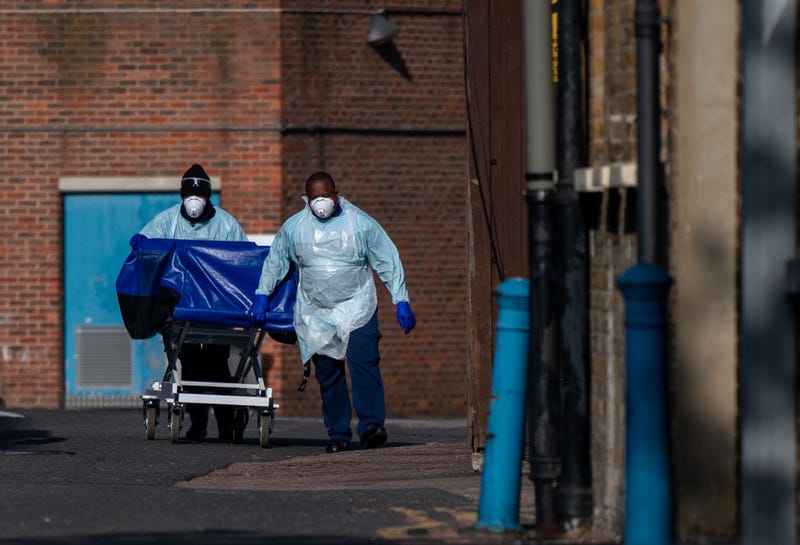
On November 30, Athens Pizza in Brimfield, Mass., announced through a Facebook post that they “will be closed for the rest of the week.
Unfortunately we have been exposed to Covid.”
Athens Pizza is now closed permanently after owner Tony Tsantinis, 68, died from the coronavirus on December 10. And according to his doctor, it was an unnecessary fatality born of overcrowded hospitals and vaccination refusals.
“[He] literally looked me in the eyes and said this didn't have to happen,” Tsantinis’s daughter Rona Tsantinis-Roy told NPR, relaying a statement from her father's doctor that continues to plague her thoughts.
She said the doctor intimated that her father could have survived his bout with COVID had he been hospitalized at a larger facility, but transfer attempts were unsuccessful. Tsantinis-Roy said 17 different hospitals turned down transfer requests because they lacked a bed for her father.
By the time a bed was available in a facility that with an ICU that could handle Tsantinis’s needs, his condition had worsened. Now Tsantinis needed dialysis because of failing kidneys, and the ICU at Harrington Hospital was suffering from a shortage of dialysis nurses who could administer the treatment.
Tsantinis again needed a transfer, but this time he was too unstable to travel. The beloved pizza restauranteur died just a few hours later.
Tsantinis was unvaccinated despite his daughter pleading with him to get inoculated. “He was old-school and didn't believe in vaccines,” Tsantinis-Roy said. However, while he wouldn’t comment on Tsantinis’s case in particular, Dr. Eric Dickson, president and CEO of UMass Memorial Health – the network that controls Harrington Hospital and other facilities in the state – told NPR that a patient’s vaccination status does not come into play when facilities decide whether or not to accept a patient transfer.
Dickson said the problem is much greater than just any given hospital’s prioritization of which patients to admit.
“Everybody wants to believe that the system is holding up just fine, but it isn't," he said. "It's breaking down.
And when it breaks down, patients are harmed.”
Dickson said COVID is only one factor in the lack of available care. Hospitals have other injuries and ailments to treat, and since the beginning of the pandemic, some chronic illnesses have been allowed to worsen because of delayed care resulting in a lack of timely treatment or even missed medications.
To make matters worse, a staffing shortage has added an obstacle to treating all who need care, meaning Tsantinis won’t likely be the only casualty of overcrowded medical facilities before the omicron surge subsides.

